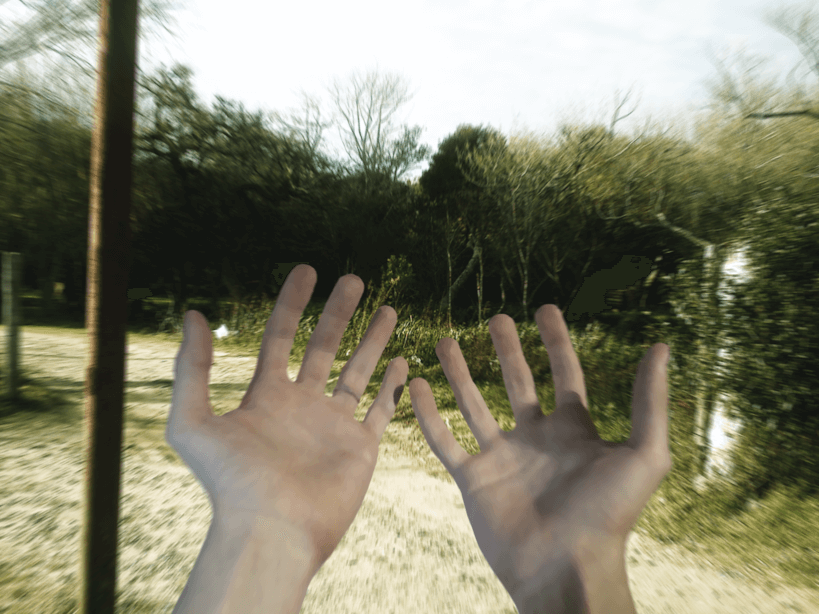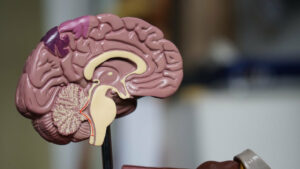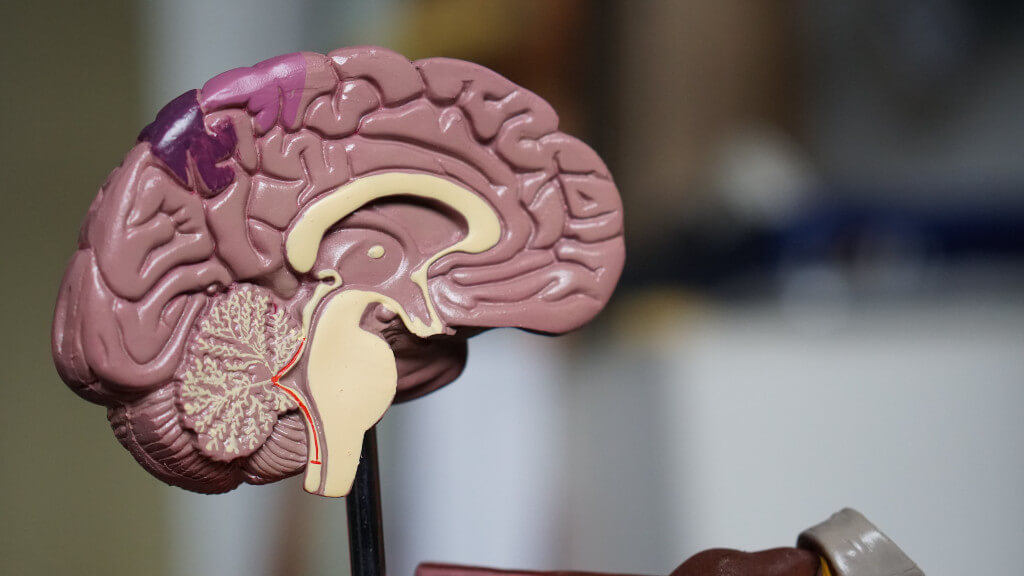Do you ever feel like someone else entirely? As though you have no idea what’s going on around you. To the point where you seem to be operating just on autopilot? You’re working, living, and chatting, but you’re not truly present in the world, are you? That could be a sign of a disorder including depersonalization or derealization.
According to the Diagnostic and Statistical Manual of Mental Disorders, 5th Edition, people suffering from disepersonalization disorder report feeling emotionally distant from themselves regularly.
On the other hand, those suffering from derealization illnesses may feel as though they are losing touch with reality. Nothing in your life may appear real if you have both of these dissociative illnesses. Depersonalization/derealization disorder is another name for this condition.
Simply put, you don’t feel like yourself and may experience feelings of alienation. It’s like staring at your own life through a mirror. You feel like an alien observer looking in on your own life from the sidelines. These sensations may be fleeting and not necessarily cause immediate concern. However, a definitive diagnosis or treatment is necessary if panic attacks are occurring or if the condition is beginning to interfere with daily life.
Why Does One Experience Depersonalization?
Depersonalization disorder, like other mental health issues and dissociative disorders, has a mysterious origin. However, the likelihood of a person acquiring depersonalization disease might be affected by certain risk factors.
Potential Dangers:
- Direct or indirect exposure to a traumatic experience (e.g., abuse, accident, assault, death of a loved one)
- Life-challenging occasions at work, in personal relationships, or at home
- Symptoms of mental illness, such as heightened worry, despair, or panic could lead to a breakdown.
- Abuse of drugs or alcohol
Depersonalization Disorder Symptoms

Depersonalization sufferers often feel as though they are “going crazy,” for lack of a better description of the condition. Since dissociative disorders are linked to a sense of disconnection from one’s past, present, and future, this finding makes some sort of intuitive sense. Symptoms of depersonalization consist of:
- You can get the impression that you’re watching your own life unfold from the sidelines.
- Acting robotically or on autopilot (you don’t decide what to do or say).
- Feelings, ideas, or thoughts that your physical form is incorrectly represented (e.g., you’re missing an arm, you’re a little creature).
- Indifference or indifference (it may seem as though you don’t feel pain or cry at all)
- Feeling unsure of your recollections (questioning yourself if the past events in your life did occur)
- Astral projection (e.g., seeing yourself sleeping)
- Time and date accuracy could be suspect. (feels like being stuck in the past or still being a child)
Everyone experiences episodes of depersonalization and derealization disorder differently. In some cases, an episode can last for several hours. Some people can lose touch with reality for weeks at a time. Seek immediate medical attention if you experience any of the above symptoms.
Can You Get Over Feeling Depersonalized?
Some people with depersonalization/derealization disorder find that their symptoms improve without any treatment at all. Some people can’t get better without following a treatment plan. When depersonalization and derealization, two forms of dissociative illness, start to interfere with a person’s day-to-day functioning, it’s cause for concern. Depersonalization and derealization of disease symptoms could improve with time. However, the symptoms may return in the future if the triggers aren’t properly treated.
Two things to keep in mind when coping with depersonalization/derealization disorder symptoms are that they can return and that they can be quite upsetting. If you don’t get treatment, you may not realise you have depersonalization/derealization disorder. If a mental health expert misdiagnoses your condition, how can you hope to get better?
Disorders of Depersonalization Can Be Treated
Controlling and preventing the recurrence of symptoms is the focus of treatment for depersonalization/derealization illness. Psychotherapy or talk therapy is the mainstay of care for various conditions in the field of mental health.
Treatment primarily consists of talking therapies such as psychotherapy, cognitive behavioural therapy, or counselling with a mental health professional. When working with a therapist, it is important to feel safe opening up about your thoughts and emotions.
Share your struggles, your emotions, and any traumatic experiences you’ve had. Talking to a therapist may shed light on the source of your distress. Once a diagnosis of depersonalization/derealization disorder has been made, therapy can be used to create a personalised treatment plan. Psychotherapy may aid in:
- Learn the causes of your depersonalization/derealization symptoms.
- If you experience episodes, you can learn distraction tactics to help you cope.
- Assist you in developing a deeper sense of self-awareness and connection to the world around you.
- To deal with feelings stemming from prior traumatic situations
- Rehabilitation from conditions like anxiety and depression
Medications
People with depersonalization/derealization disorder may benefit from medication. To be clear, there is currently no drug that will miraculously cure dissociative illnesses. However, medication can be used to treat the signs of anxiety and sadness.
One essential strategy is to seek professional help from therapists or counselors experienced in treating both depersonalization and addiction. They can provide guidance and support tailored to your specific needs. Therapy approaches such as cognitive-behavioral therapy (CBT) and dialectical behavior therapy (DBT) can be particularly beneficial in addressing depersonalization symptoms and addiction concurrently. These therapeutic interventions can help you identify and challenge distorted thoughts and beliefs, develop coping mechanisms for managing depersonalization episodes, and build healthier habits and routines. Additionally, participating in support groups or attending group therapy sessions can provide a sense of belonging and understanding as you connect with others who have similar experiences.
Depersonalization Disorder: Coping Strategies

If you suffer from depersonalization disorder and are going through an episode, tell yourself that things will get better. Believe in yourself; you can do it! Use these methods of dealing with stress even when it seems impossible.

Stress and anxiety are common conditions that affect a lot of people. They may experience…

Do you feel like you have a problem with your emotional health? Are you curious…

A minimum of 5 million South Africans, or 10% of the total population, have experienced…

When someone is diagnosed with tuberculosis (TB), they face a number of challenges, including social…
Recognize the Signs and Emotions You’re Experiencing
Do not put off dealing with your symptoms until they consume your entire day. Recognize your symptoms for what they are so you can take action. This is why helping those with dissociative disorders get the attention, knowledge, and diagnosis they need is crucial.
Recognizing and accepting your feelings might help you feel more in control of your situation and reduce feelings of depersonalization. Seek assistance as soon as you become aware of the onset of episodes.
Put Your Intrusive Thoughts to the Test
Disorders of depersonalization and derealization are characterised by the presence of intrusive thoughts. These are intrusive mental processes that might consume your entire day. How can you help? Challenge these unwanted ideas by taking charge of your mind. Some options are as follows:
Breathing With Consciousness
If you feel yourself becoming anxious or overwhelmed by your thoughts, take a moment to yourself in a quiet spot, close your eyes, and breathe deeply. Controlling depersonalization and derealization symptoms can be as simple as practising mindfulness breathing, which can interrupt intrusive thoughts and soothe the senses.
Listen To Some Music
Depersonalization is a powerful emotion; listening to music is a great way to overcome bothersome thoughts. What sort of music you should listen to is entirely up to you. Listen to music that either uplifts you, compels you to sing along, or soothes your nerves.
Create a custom playlist full of your preferred tunes on your mobile device. If you find yourself preoccupied with negative ideas, try putting on some relaxing music and pressing play. If you’re feeling emotionally distant, music therapy may be able to help you feel better by providing a welcome diversion.
Do Some Reading
Reading a book is another great way to divert your attention. You can get your reading material in print, digital, or audiobook form. It doesn’t matter if you read a new self-help book, an old favourite, or a soothing anecdote. Your racing mind will calm down as you read and comprehend the words.
Reading self-help books on mental health may be helpful. You’re gaining insight into how to handle your situation while also diverting your attention from the bothersome ideas. Change Your Brain, Change Your Life is one of those books that can truly alter your life for the better.
Keep a Diary of Your Thoughts
Keeping a journal and writing down your thoughts, feelings, and emotions has been shown to have positive effects on mental health. Writing out your feelings can provide you with some much-needed perspective. You can keep track of the cycles of depersonalization and derealization that you experience.
Keep track of the things that trigger your intrusive thoughts, what happens when they do, any symptoms you have, and any distractions that work to get your mind off of it. Or just think of what you want to accomplish tomorrow, or what made you happy today. By mentally formulating these words, you may silence those distracting thoughts and regain mental control.
Reach Out to Someone You Care About
It’s not helpful to isolate yourself when you’re feeling stressed and the symptoms of the condition are starting to show. Isolation has been shown to exacerbate symptoms. Do not enable your mental condition and hope that it will go away. Instead, when you start to feel sick, phone a close friend or family member.
Share your feelings and experiences with someone you trust. You’ll be able to take your mind off things and get the help you need in this way. Choose three reliable people to contact if you can’t decide who to call. It might be anyone from a close friend or spouse to a parent or child.
Control Your Stress Levels
Depersonalization/derealization disorder is just one of several illnesses that can be exacerbated by stress. Avoid stressful events and learn to manage stress effectively to cope with this condition. Why are you doing this?
Sleep enough, work out regularly, eat a healthy, balanced diet, avoid burnout, relax, pursue interests that bring you joy, and reach out to those who can help. Avoid episodes of depersonalization/derealization disorder by learning to cope with stress if you can’t avoid it, especially at work.
How Can I Keep From Getting Depersonalized and Unrealized?
How one might avoid developing depersonalization/derealization disorder is a mystery. However, getting therapy soon after experiencing trauma can help. (e.g., accident, abuse, death of a loved one). Knowing the signs of the disease and getting help quickly if you experience any of them might be helpful, too.

This is the ultimate solution for impeccable audio content with our Powerful Relaxing…

Do you feel like you have a problem with your emotional health? Are you curious…

Stress and anxiety are common conditions that affect a lot of people. They may experience…

When someone is diagnosed with tuberculosis (TB), they face a number of challenges, including social…



